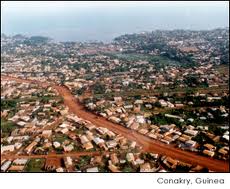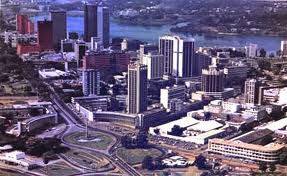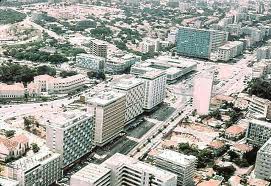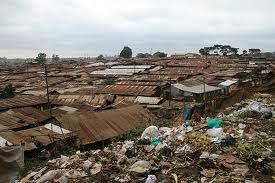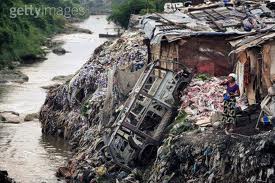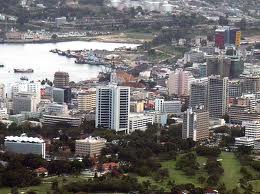 NPR’s fabulous story this morning about Kenya and China begs repeating what I’ve been saying for so long: watch China carefully and learn without embarrassment. The world may do better, then.
NPR’s fabulous story this morning about Kenya and China begs repeating what I’ve been saying for so long: watch China carefully and learn without embarrassment. The world may do better, then.
Frank Langfitt’s reporting on Morning Edition was superb. (And so much better than NPR’s former African correspondent, Ofeibea Quist-Arcton, who has been reduced to the new “West African Correspondent” where she continues to do a bad job, there.)
Langfitt did a yeoman’s job telling a decade’s story in less than 15 minutes. But there were a few things of importance that were neglected.
In May last year I wrote about the “Flame Tree Road“, which was then 8 lanes growing to 11 and is now, as Langfitt reports, 16 at some spots. Last September I wrote about China’s port plans in Kenya, and just a few months ago, Conor Codfrey reported the somewhat jaded views of western businesses about all of this. Two years ago I reported China was suddenly in Kenya looking for oil. Langfitt recapped it all, very well.
China is entirely and pitifully practical. And that is the crux of the difference between her and the west.
The west pontificates at best, fools at worst, and has been doing so for centuries.
The three C’s that governed Livingstone’s life and fund-raising, “Civilization, Commerce and Christianity” more or less governed until just this decade virtually everything the west ever did in Africa. China is also a “C” but like any efficient businessman, they’ve reduced the three C’s to a more productive two: “China & Commerce.”
China’s premise appears in stark relief for those of us who know Africa. Damn Kenya’s dwindling forests, we need the wood to build things. Forget about Kenya’s wetlands, they have no oil. And as for its wildlife, the only good rhino is one without a horn.
Poaching of both elephants and rhinos has increased substantially with the Chinese presence in East Africa, and there have been regular reports of Chinese apprehended in East Africa with poached ivory or rhino horn.
More worldly: Damn the millions under the Yangtze dam, discard the two centuries of Tibetan Buddhism, consider an enemy the enemies of your neighbors and do anything for a quart of oil.
Did I say we can learn from this?
Yes, absolutely. Because this policy reeks of the desperation of perfected capitalism, and that is the world’s economic system. Knowing it doesn’t mean you love it.
Ever since Livingstone’s three C’s, the west has spent enormous resources in trying to justify and work through the inherent contradiction between capitalism and goodness, trying in effect to claim there wasn’t an inherent contradiction. Realpolitik was the west’s first foray into diplomatic reality and succeeded to some extent because its American minister had a thick foreign accent. But Realpolitik has faded recently as Christianity and other ideologies like “hard work” and “marriage” have ascended.
The Chinese just love Glen Beck.
Africans are getting worried now that this pure intention of China is without a soul. Langfitt’s reporting this morning encapsulates in a few minutes volumes of recent articles and endless conversations on Kenyan radio talk shows.
After all, the west gave Kenya its religions. China is giving it its roads. There’s a very interesting future out there.
